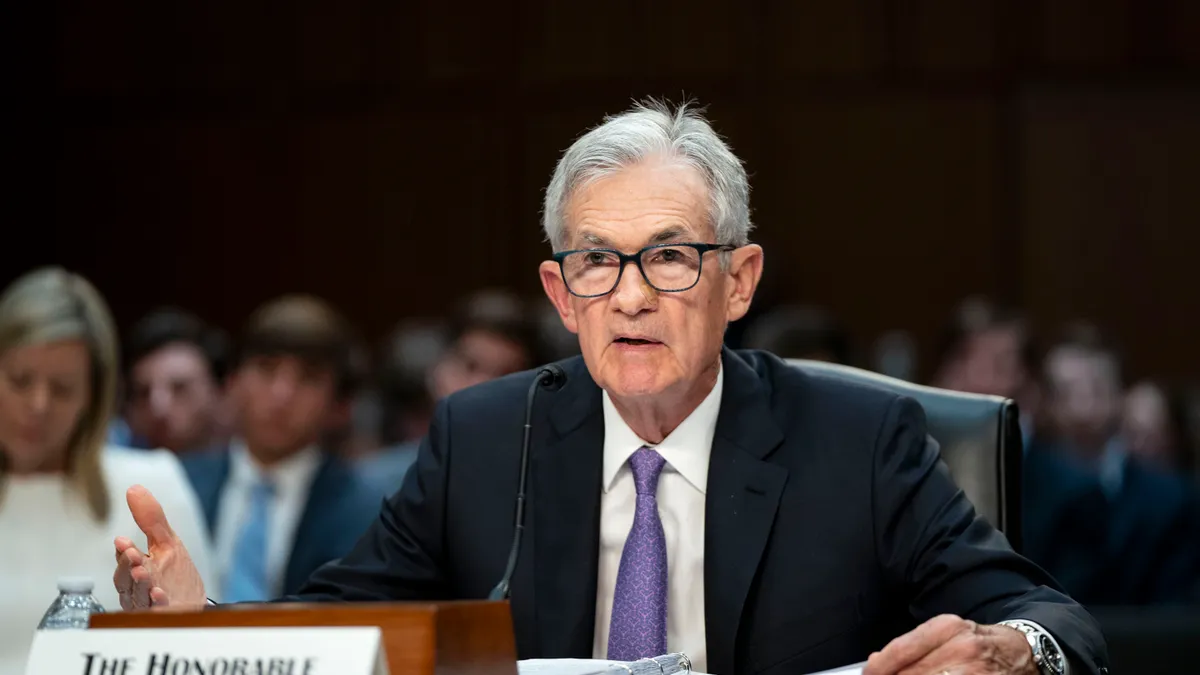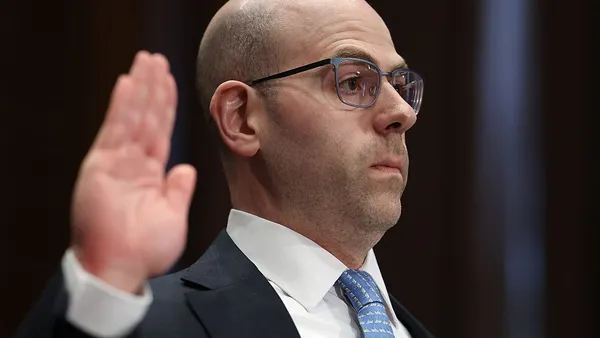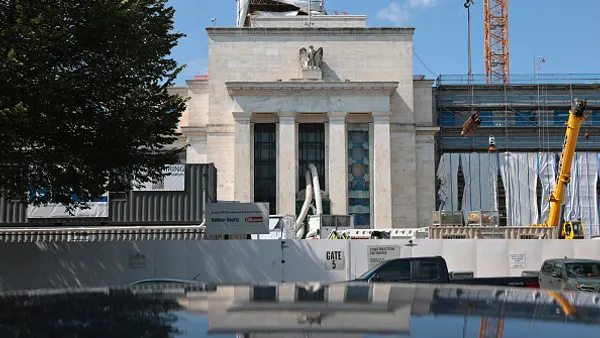Dive Brief:
- The Federal Reserve Board believes it’s “essential” to solicit public comment on alterations to regulators’ capital requirements proposal, in light of “broad and material” changes expected to be made, Fed Chair Jerome Powell said Tuesday during a semiannual monetary policy report to the Senate Banking Committee.
- But the agency is working to get the Federal Deposit Insurance Corp. and the Office of the Comptroller of the Currency on board with that. “We haven’t reached agreement on that, but I’m very hopeful that we will,” Powell added.
- When asked about the timing of a final proposal, Powell indicated it’s not likely to occur this year. Powell said he hopes the agencies will be able to come together on a way to proceed “very soon. I had hoped we would have done so by now. But I believe we will do so fairly soon.”
Dive Insight:
Powell’s comments Tuesday follow those made during a May hearing, by Michael Barr, the Fed’s vice chair for supervision, Acting Comptroller of the Currency Michael Hsu and FDIC Chair Martin Gruenberg, who all told senators during a panel hearing the agencies were still focused on substance over process.
The proposal, released last July, would require the biggest U.S. banks to hold roughly 19% more capital and align them more closely with the Basel III endgame. It would alter how banks assess risk and affect how much capital needs to be held to guard against potential losses. It received a flood of criticism from large banks, and in March, Powell indicated changes were being considered.
Over the past several months, Barr has held a series of discussions with other bank regulatory agencies on potential changes to the original capital requirements proposal, Powell told senators Tuesday.
“I’m pleased to say that we’ve made quite a bit of progress on those, and are very close to agreeing on the substance of those changes,” Powell said, adding that he couldn’t be more specific in that area.
The agencies have yet to reach a consensus, however, on the process.
“It is my view, it is the strongly held view of members of the board, that we do need to put a revised proposal out for comment for some period,” Powell continued. “When there are broad and material changes, that has been our practice.”
The Fed is in talks with the leadership of the FDIC and OCC on that topic, he said. The idea is that when an agreement is reached, the agencies would publish the proposed changes to the rule and solicit public comment for a period of time before moving toward finalizing.
As for the timing of a final proposal, Powell said it’s difficult to be precise. “It takes some time to write this stuff up, then you put it out for comment, then you get the comments, then you read the comments, then you write the final rule,” he said.
“The beginning part of next year is a good guess-timate,” Powell said. In May, Barr, Hsu and Gruenberg had all pledged to Sen. Elizabeth Warren, D-MA, that they were committed to finalizing a “strong rule” this fall.
With the presidential election looming, Republicans have repeatedly pushed for the proposal to be reissued, while Democrats have urged regulators to move toward finalizing the rule.
Senate Banking Committee Chair Sherrod Brown, D-OH, also asked Powell what the Fed is doing to help customers of bankrupt middleware provider Synapse, since the Fed oversees one of the fintech’s bank partners, Evolve Bank & Trust. Brown is among a group of senators who called on Synapse’s partners to return millions of dollars to customers whose money is inaccessible amid the embattled firm’s bankruptcy proceedings.
The Fed is “strongly encouraging Evolve to do whatever it can to help make money available to those depositors,” Powell said. He noted the Fed’s recent enforcement action against Evolve, which related to risk management issues, although that occurred prior to Synapse’s current situation.













